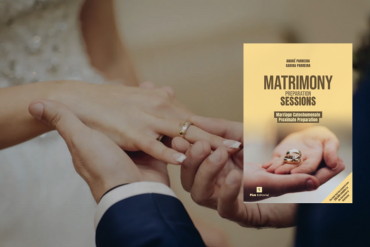With the new document published by the Holy See – Catechumenal Pathways for Married Life – prefaced by Pope Francis, the Church is — once again! — being invited to review and renew marriage preparation.
In this document — which must be studied by all those involved in the apostolate of marriage preparation, whether they are agents of family movements, members of family pastoral ministry, priests, or even bishops — one of the greatest challenges is found precisely in the Proximate Stage, still commonly referred to as “engaged couples’ meetings” or “premarital courses”.
The document clearly defines two key aspects: the structure of this stage and the couples to whom it is addressed. Regarding the structure, it is emphasized that this stage should not consist of just a few meetings, much less a single intensive weekend session (let alone a single afternoon!). A catechumenal preparation is proposed. As for those to whom this stage is addressed, the document proposes that it should not be directed exclusively to “formally” engaged couples, but also to dating couples and cohabiting couples who have no impediment to receiving the Sacrament of Marriage.
Therefore, it is not a “course,” nor is it meant exclusively for engaged couples.
What is most striking, however, is that this understanding is not new — neither regarding the structure nor the intended recipients of this stage.
Just a few years later, in 1981, in his apostolic exhortation Familiaris Consortio, Pope Saint John Paul II used the term “catechesis” – and even renewed catechesis – to refer to marriage preparation, without referring specifically to “engaged couples”.
As a confirmation, recently Pope Francis has been employing the term catechumenate.
In the document Catechumenal Pathways for Married Life, published by the Dicastery for Laity, Family and Life, reaffirms all previous guidelines. Furthermore, the document challenges the Church to attract couples from an earlier stage — already during their dating phase — so that engagement emerges from a process of catechetical discernment, and not the criterion for seeking it, as still often happens. For the first time in the history of magisterial documents on marriage preparation, it is stated — on two occasions — that such catechesis should last approximately one year.
Therefore, it is necessary to envision a form of marriage catechumenate with a significant number of sessions and sufficient duration, capable of fostering bonds and enabling deeper reflection on the topics addressed — just as in any other catechetical process. From this formative journey, the couple should feel confident in making their engagement decision. This orientation is clearly expressed in the Magisterium’s documents.

